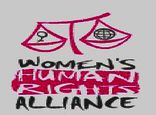The IFPA has welcomed the call by the UN Special Rapporteur on the Right to Health for the Irish Government to decriminalise abortion. The Special Rapporteur, Mr. Anand Grover, made the call during a seminar – organised by the Women’s Human Rights Alliance – in Dublin on 17th December 2012.
His call comes exactly two years after the landmark European Court of Human Rights judgment in the A, B and C v. Ireland case.
Maeve Taylor, IFPA Policy Officer, said: “Although protocol does not allow UN Special Rapporteurs to comment on specific countries, Anand Grover has sent a strong message to the Government that it must decriminalise abortion and ensure that abortion services are made available in Ireland.”
Mr. Anand Grover told the seminar that, in cases where a barrier to health is created by a criminal law or other legal restrictions, it is the obligation of the State to remove it. Barriers arising from criminal laws and other laws and policies affecting sexual and reproductive health must, he said, be immediately removed in order to ensure full enjoyment of the right to health.
“This view is in accordance with the Government’s own Expert Group Report, which has recommended the introduction of legislation to remove the criminal provisions of the 1861 Offences Against the Person Act,” said Maeve Taylor. “The Expert Group has considered such legislation to be necessary if the Government is to comply with the ruling of the European Court of Human Rights in the A, B & C case.
“When the Cabinet convenes tomorrow to decide its approach to the A, B & C judgment, it must add Mr. Grover’s views to those of its own Expert Group, the European Court of Human Rights, the Irish Supreme Court and the wishes of the Irish people as expressed in the 1992 and 2002 referenda. The Government must agree to introduce legislation and workable guidelines to give the required legal certainty to women and doctors who are faced with pregnancies involving risk to a woman’s life.”
During today’s event, Mr. Grover outlined the impact of criminalisation of sexual and reproductive health services, particularly in relation to women, and how criminalisation impinges on the right of everyone to the enjoyment of the highest attainable standard of physical and mental health.
He also discussed how laws and other legal restrictions are used to regulate abortion, conduct during pregnancy, sexual and reproductive education, and contraception and family planning. Mr. Grover also outlined the negative impact that such criminal laws and other legal restrictions have on healthcare.
About Anand Grover
Anand Grover, UN Special Rapporteur on the Right to Health, is a lawyer with an impressive history in activism for the rights of women, the LGBT community, sex workers, and sufferers of HIV. His duties as UN Rapporteur on the Right to Health include gathering information on how Member States comply with requirements to realise the right to health, as well as promoting this issue globally.
In late 2011, as UN Special Rapporteur, he issued a report on the impact of criminalising aspects of sexual and reproductive health, such as contraception, sex education, maternal care, and safe abortions
About the Women’s Human Rights Alliance
The Women’s Human Rights Alliance (WHRA) is convened by the National Women’s Council of Ireland (NWCI). It is a coalition of independent non-governmental organisations that advocate for women’s human rights. Current members include AkiDwA, Amnesty International, Cairde, Pavee Point Travellers’ Centre, Migrant Rights Centre Ireland, Immigrant Council of Ireland, Irish Council for Civil Liberties, National Travellers’ Women’s Forum, National Collective of Community Based Women’s Networks (NCCWN), OPEN, Ruhama, Irish Family Planning Association, UN Women Ireland and Women’s Aid.
About A, B and C v. Ireland
In December 2010, the European Court of Human Rights delivered its verdict in the case of A, B and C v Ireland − a landmark challenge to Ireland’s restrictive abortion laws. The Court found that Ireland’s highly restrictive abortion laws violate women’s human rights and that abortion, when a woman’s life is at risk, should be lawfully available in Ireland.
The Court unanimously found that Ireland’s failure to give effect to the existing constitutional right to a lawful abortion in Ireland when a woman’s life is at risk violates Article 8 of the European Convention on Human Rights. The decision reaffirmed the Supreme Court X Case judgment of 1992.
The case was taken by three women, supported by the IFPA, who travelled abroad for abortion services. They argued that the criminalisation of abortion services in Ireland jeopardised their health and wellbeing, in violation of a number of articles of the European Convention on Human Rights. The case was heard before the Court’s Grand Chamber of 17 judges, which is reserved to hear cases that raise serious questions affecting the interpretation of the European Convention on Human Rights.

